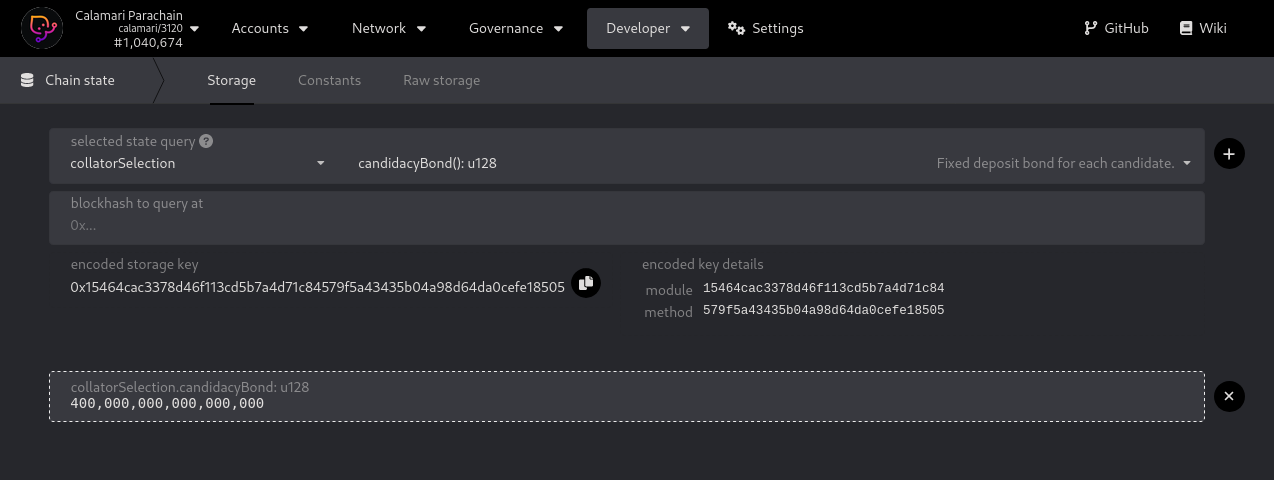👩🏼💻 How to apply to run a Calamari collator
Meet or surpass the hardware and infrastructure requirements
a. Running on your own hardware and within you own premises (preference is given to independently operated, private collator nodes, because it directly facilitates the vision of optimum decentralization):
collator system host (note that a substrate collator will utilize all available system ram and all available cpu cores unless specifically configured not to do so)
- cpu: 8 cores
- memory: 32 gb of ram (more is better)
- disk space: 500 gb of disk space dedicated to the blockchain basepath (more is better)
infrastructure and environment
network bandwidth: 100 mbps+
internet-accessible ports:
- 31333: default calamari peer-to-peer port
- 31334: default (embedded-relay) kusama peer-to-peer port
- 9615: default calamari metrics port
- 9616: default (embedded-relay) kusama metrics port
you should monitor your own collator using the techniques described on the polkadot wiki. the metrics exposed on ports 9615 and 9616 facilitate this, so these ports should be accessible both from your own prometheus/alertmanager server (which should be configured to alert you) and manta devops' pulse server at
18.156.192.254(monitored by manta devops).an uninterrupted power supply to both the collator node and the network switches and routers that provide its connectivity must be capable of keeping the system online during provider power outages
a failover 4g or 5g router should be included in your network topology to provide connectivity in the event of a wired or fibre connection failure
your network management should include automatic dns updates in the event of changes to your nodes publicly accessible ip addressing
b. Running on AWS EC2
- instance type: r5ad.xlarge or similar
- image: Ubuntu 20.04 (latest ubuntu server ami from Canonical/099720109477)
c. Azure/GCP or other cloud/datacenter provider
- Please use your judgement to match or surpass the requirements for other environments above
Bonding requirement
400_000 (four hundred thousand) KMA will be bonded and is not transferable whilst collating. Ensure the same account always has a small free balance above the bonded amount to account for transaction fees of the registration process. This should normally be covered by leaving a free balance of 20 KMA available. In practice, the fees are much smaller, but not zero.
caution
A free balance of 400_000 KMA must be maintained at all times during the application process. Special care should be taken with participation in voting to prevent locking any part of the candidacy bond.
When voting, the vote value should be for an amount less than the free account balance, minus the candidacy bond. for example: a collator account with a free balance of 400_100 KMA, should set the vote value to an amount less than 100 KMA to prevent locking any portion of the collator bond, which would cause a collatorselection(NewDesiredCandidates) call to fail with a LiquidityRestrictions exception.
You can always check the current candidacy bond amount on calamari > collatorSelection > candidacyBond(): u128.

Fill in the application form
Please complete the collator application form.